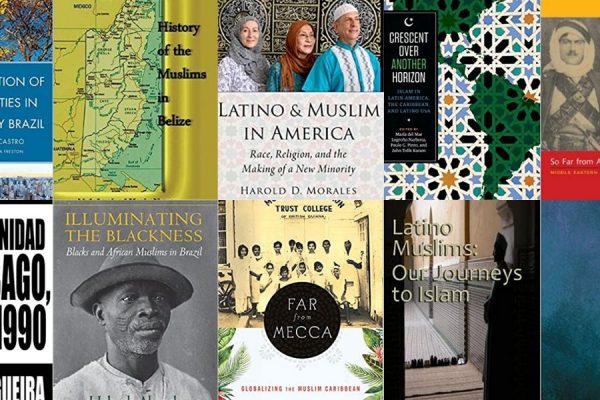“I write this because we as Muslims have an obligatory responsibility to seek knowledge…and gaining knowledge is an all-powerful tool in the current climate of the world we live in.”
“I write this because we as Muslims have an obligatory responsibility to seek knowledge…and gaining knowledge is an all-powerful tool in the current climate of the world we live in.”
Iqra; read. “Read in the name of thy Lord who created”.
The first words of the Holy Quran descended from the heavens to the Prophet Muhammed (PBUH). The very foundation of the religion of Islam was one word; read.
But in the modern-day whirlwind of technology, with the new iPhone coming out faster than the battery life on your current one, reading and books have been packed away with flip phones and iPods. According to a survey conducted by the Bureau of Labor and Statistics, American’s reading for pleasure has fallen around 30% since 2004.
I don’t need to inundate you with the statistics that show the ways technology has replaced books – all you need to do is look around at the children in our community or take public transportation. Books and reading have become considered outdated for many people, adopting the sentiment that reading is best reserved for academia.
It is my hope, with this article, to shed some light on the benefits and importance of incorporating reading in your life. I hope to share with you some of the magic I find spilling from book pages, an opportunity to step outside of your world and into another. You see, reading has numerous benefits, and it plays a critical role in enhancing our mental capacity. Just as we place importance on physical health, reading is an essential workout for your brain. According to numerous studies, these are just some of the benefits of reading:
- Teaches you empathy
- Increases knowledge
- Vocabulary expansion
- Memory improvement
- Stronger analytical skills
- Stronger writing skills
- Stress Reduction
- Entertainment!
Reading a book doesn’t always have to be an academic experience. Afterall, it’s not just non-fiction books that have a positive impact on the brain. In her TedTalk titled, “Why reading matters”, Rita Carter discusses how impactful reading fiction can be. Reading about the lives and experiences of others stimulates parts of the brain that aren’t usually used.
Take for example, running. Reading about a character running in a book actually stimulates the part of your brain that would be stimulated if you were the one physically running. Albeit, reading about running does not replace a workout (I wish), but it speaks to the tremendous power of our brain that can be stimulated through reading. The same concept can be applied to emotions. Reading about pain, sadness, anger, happiness, etc. stimulates the part of our brain that would normally feel those emotions, building stronger pathways towards empathy. You’re not just reading, you’re experiencing.
Reading books allows you the opportunity to travel through fictious worlds as well as the lives of people around the world today. It allows you the chance to travel through centuries and predict futures. All the while, improving your brain.
Reading is important, valuable, and necessary for societies. In fact, literacy skills at the fourth-grade level have been utilized as a predictor of the likelihood an individual will come into contact with the criminal justice system. Books are powerful, so it comes as no surprise that they are generally the first to be censored and policed. Censorship of books and knowledge have always been tactics utilized in repressive societies.
Bearing all this in mind, we have to think, is it coincidental that the first commandment from God to the Prophet Muhammed (PBUH) was to read?
I write this because we as Muslims have an obligatory responsibility to seek knowledge. Seeking knowledge is far more than earning a college degree. Seeking knowledge is learning about the world and the people who surround us. Gaining knowledge is an all-powerful tool in the current climate of the world we live in.
Ray Bradbury, the author of Fahrenheit 451, a book about a future society that burns and bans books, stated: “You don’t have to burn books to destroy a culture. Just get people to stop reading them.” Let us build on the foundational commandment, and center reading in our lives. What are some ways we can do so?
First, if you’re having a hard time finding a book you enjoy or are in some sort of reading slump – try rereading a book that you’ve always loved. Picking up a book that you’ve previously enjoyed allows you the opportunity to rekindle the love. Second, get a library card and check out your local libraries! Third, check out audiobooks. Listen to a good book while working out, commuting, or getting things done around the house!
With all the social distancing going on in the world around us, books can help us remain connected not only with one another, but with those who came before us and those who will come after us. Use this opportunity to support your local bookstores, who are still shipping online!
Finally, to end with the wise saying of the beloved Imam Ali, “A person who keeps himself occupied with books, will never lose his peace of mind”.





